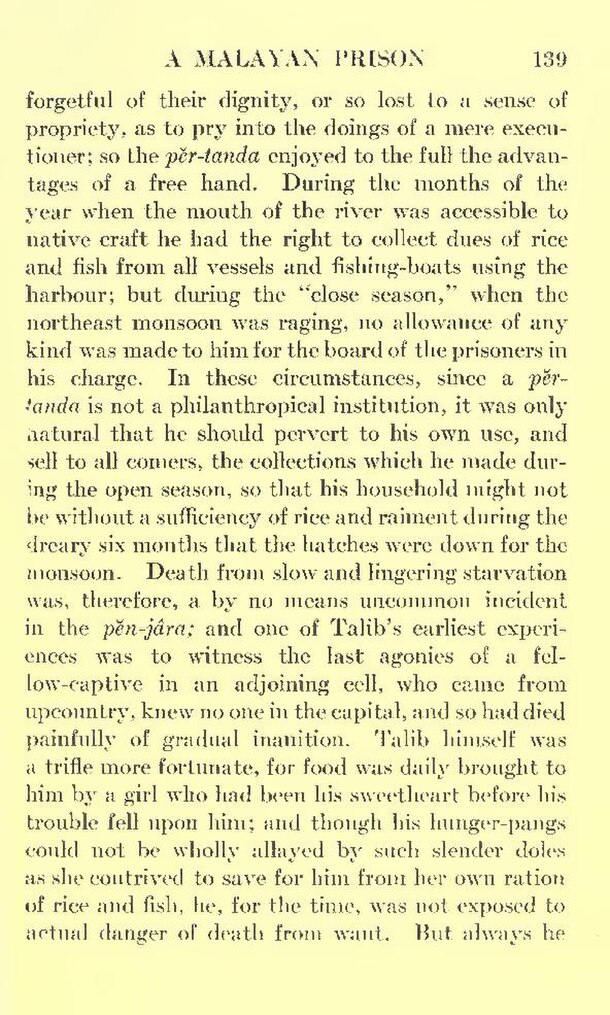forgetful of their dignity, or so lost to a sense of propriety, as to pry into the doings of a mere executioner; so the pĕr-tanda enjoyed to the full the advantages of a free hand. During the months of the year when the mouth of the river was accessible to native craft he had the right to collect dues of rice and fish from all vessels and fishing-boats using the harbour; but during the "close season," when the northeast monsoon was raging, no allowance of any kind was made to him for the board of the prisoners in his charge. In these circumstances, since a pěr-tanda is not a philanthropical institution, it was only natural that he should pervert to his own use, and sell to all comers, the collections which he made during the open season, so that his household might not be without a sufficiency of rice and raiment during the dreary six months that the hatches were down for the monsoon. Death from slow and lingering starvation was, therefore, a by no means uncommon incident in the pěn-jâra; and one of Talib's earliest experiences was to witness the last agonies of a fellow-captive in an adjoining cell, who came from upcountry, knew no one in the capital, and so had died painfully of gradual inanition. Talib himself was a trifle more fortunate, for food was daily brought to him by a girl who had been his sweetheart before his trouble fell upon him; and though his hunger-pangs could not be wholly allayed by such slender doles as she contrived to save for him from her own ration of rice and fish, he, for the time, was not exposed to actual danger of death from want. But always he
Page:The further side of silence (IA furthersideofsil00clifiala).pdf/161
